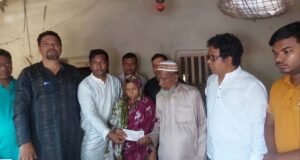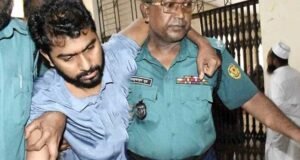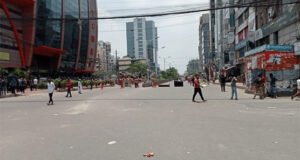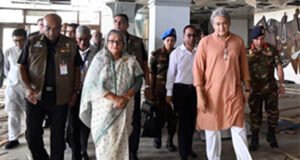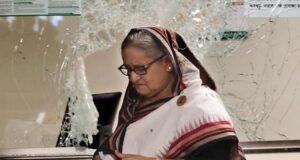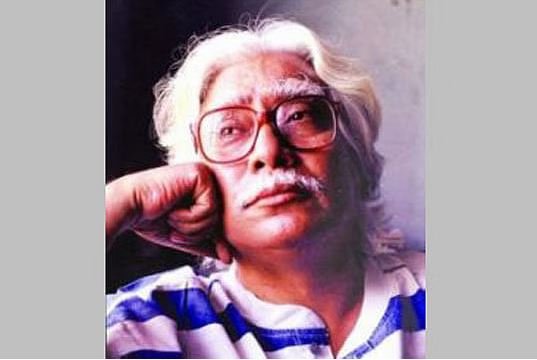
Ekushey Padak-winning poet and freedom fighter Mohammad Rafiq passed away on Sunday night. He was 80.
The poet breathed his last on his way to Dhaka from Barishal around 9 pm on Sunday, according to his family sources.
Mohammad Rafiq had been suffering from various health complications.
The family said Rafiq went to his hometown in Bagerhat three days ago. When he fell sick on Sunday, he was taken to a local clinic in Barishal city where doctors advised taking him to Dhaka.
The poet died while being transferred to Dhaka for advanced medical treatment.
Mohammad Rafiq was buried beside his parents’ graveyard in his Bagerhat hometown following a namaz-e-janaza around 11am at Uddipon Badar Samsu Bidya Niketon.
Poet Mohammad Rafiq was born at Baitpur village under Bemrata union of Bagerhat Sadar upazila on October 23, 1943.
After passing the Matriculation exam, he enrolled in the science department of Notre Dame College in Dhaka; however, then switched to the humanities department at Dhaka College.
There he met and became friends with eminent fiction writer Akhtaruzzaman Elias , which left a strong impression on his literary spirit throughout his own literary journey.
After Dhaka College, Rafiq was admitted to the English Department of Dhaka University. In 1967, he graduated from Dhaka University in English Language and Literature.
During his student life, Rafiq made a name for himself by infusing poetic fervour into the student movement in the 1960s, and continued his rebellious creative journey during the Liberation War.
During the Liberation War, he worked at Sector-1 and later for the Swadhin Bangla Betar Kendra, inspiring the freedom fighters through his literary works.
Rafiq started his career as a college teacher after independence before joining the Department of English at Jahangirnagar University.
During this period, he continued writing and publishing his poetry and prose. He raised his voice through his poetries against the oppression in society and one of his poems titled “Khola Kobita” which was written against the military dictator Hussein Mohammad Ershad, garnered an incredibly massive response.
His maiden publication of poetry titled “Boishakhi Purnima” was published in 1970. His other notable works include “Dhulor Songsare Ei Mati”, “Kirtinasha”, “Kopila”, “Swadeshi Nishwas Tumimoy”, “Matsyagandha”, “Bishkhali Sondhya”, “Kalapani”, and “Troyee”.
For his influential contribution in the country’s literature, poet Mohammad Rafiq was conferred with the Ekushey Padak in 2010.
 Weekly Bangla Mirror | Bangla Mirror, Bangladeshi news in UK, bangla mirror news
Weekly Bangla Mirror | Bangla Mirror, Bangladeshi news in UK, bangla mirror news


